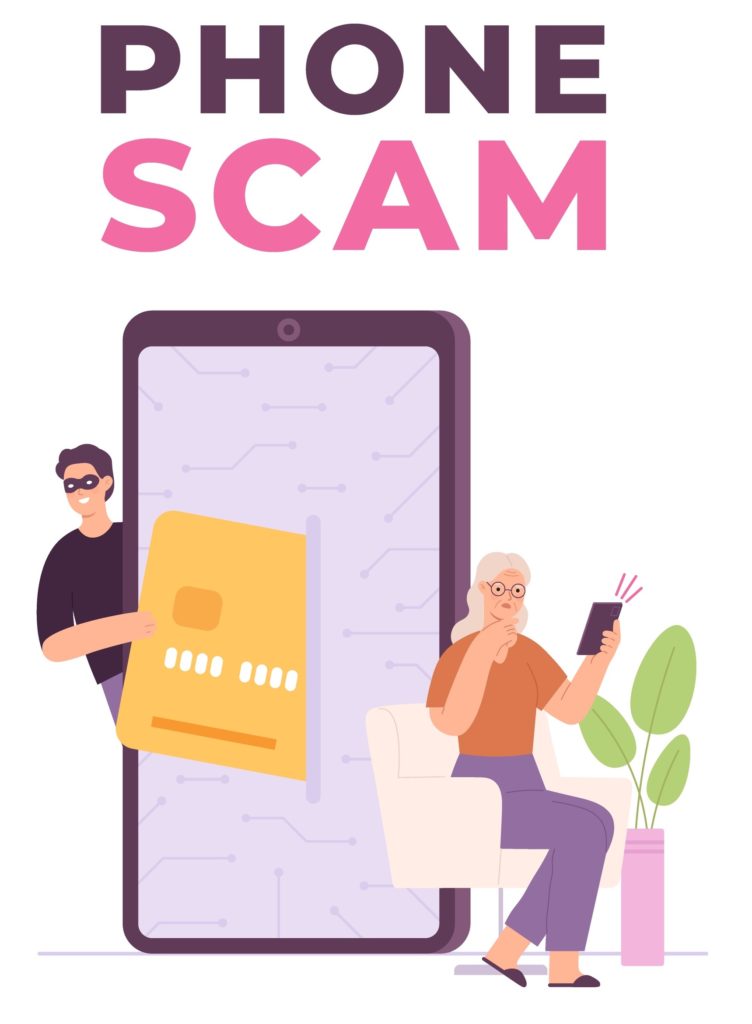 Telephone scams are a major problem for older adults. Scammers often target this age group because they are more likely to be trusting and have more financial resources. In 2021, the Federal Trade Commission (FTC) received over 2 million reports of fraud targeting older adults, with losses totaling over $1 billion. There are several things that elderly people can do to protect themselves from telephone scams:
Telephone scams are a major problem for older adults. Scammers often target this age group because they are more likely to be trusting and have more financial resources. In 2021, the Federal Trade Commission (FTC) received over 2 million reports of fraud targeting older adults, with losses totaling over $1 billion. There are several things that elderly people can do to protect themselves from telephone scams:
-
Stop Telephone Scams: Don’t answer calls from numbers you don’t recognize.

If you do answer a call from an unknown number, don’t give out any personal information, such as your Social Security number or bank account number.
-
Be suspicious of callers who pressure you to act quickly. These could signal telephone scams.
Scammers often try to create a sense of urgency, so that you don’t have time to think things through. If a caller tells you that you need to pay a bill immediately or that your computer has been infected with a virus, hang up the phone.

-
Another Common Telephone Scam Asks for Personal Information over the Phone.

Don’t do this unless you are sure of the caller’s identity. If you need to verify a caller’s identity, hang up the phone and call the company or organization directly using the number on your bill or website.
-
Be aware of common telephone scams.
There are a few common telephone scams that target elderly people. Some of the most common scams include:
- Grandparent Scams
Scammers call and pretend to be the grandchild of the victim. They say that they are in trouble and need money. - Tech Support Scams

Scammers call and say that they are from a computer company. They say that your computer has been infected with a virus and that they need to remote into your computer to fix it. - Sweepstakes Scams
Scammers call and say that you have won a prize. They ask you to pay a fee to claim your prize.
- Grandparent Scams
- Be careful about what information you share on social media. Scammers can use information that you share on social media to target you with scams. For example, if you post about your upcoming vacation, a scammer might call and pretend to be from your travel agency.
- Talk to your family and friends about telephone scams. The more people who are aware of telephone scams, the less likely they are to fall victim to them.
 About Walnut Creek Elder Law in Walnut Creek, California
About Walnut Creek Elder Law in Walnut Creek, California
Michael J. Young is an experienced elder law, estate planning and asset protection planning attorney in Walnut Creek, CA. Mr. Young advises his clients regarding their estate planning needs with an emphasis on asset protection, Medi-Cal qualification, and preservation of assets for various levels of their care as they get older. Mr. Young’s journey into elder law began when his mother suffered from an acute injury that required her to be in a skilled nursing facility. He is co-author of the book, Don’t Go Broke in A Nursing Home and is the author of the “Alzheimer’s Legal Survival Guide.” Mr. Young presents monthly workshops in Walnut Creek regarding estate planning, asset protection, and Medi-Cal planning. He has helped many clients over the years successfully qualify for Medi-Cal and has protected their assets from state recovery. Call today to schedule a consultation (925) 256-0298.

